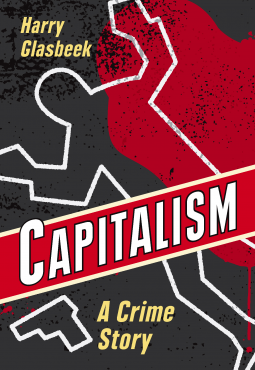
Capitalism: A Crime Story
by Harry Glasbeek
This title was previously available on NetGalley and is now archived.
Send NetGalley books directly to your Kindle or Kindle app
1
To read on a Kindle or Kindle app, please add kindle@netgalley.com as an approved email address to receive files in your Amazon account. Click here for step-by-step instructions.
2
Also find your Kindle email address within your Amazon account, and enter it here.
Pub Date Mar 15 2018 | Archive Date Apr 30 2018
Talking about this book? Use #LateStageCapitalism #NetGalley. More hashtag tips!
Description
A mugger to a stranger, “Give me your wallet or I will beat you to pulp!” It is a crime.
An employer says to a worker: “Adding lung-saving ventilation will reduce my profit. Give me back some of your wages and I will let you keep your lungs!” This is not a crime.
Our assumptions about the world condition us to see these situations as legally different from one another. But what if we, the critics of corporate capitalism, instead insisted on taking the spirit of law, rather than its letter, seriously? It would then be possible to describe many of the daily practices of capitalists and their corporations as criminal in nature, even if not always criminal by the letter and formality of law.
In Capitalism: A Crime Story, Harry Glasbeek makes the case that if the rules and doctrines of liberal law were applied as they should be according to law’s own pronouncements and methodology, corporate capitalism would be much harder to defend.
Available Editions
| EDITION | Paperback |
| ISBN | 9781771133463 |
| PRICE | CA$19.95 (CAD) |
Links
Featured Reviews
 Willy M, Reviewer
Willy M, Reviewer
This book outlines the assumptions embedded in the law and how they fundamentally affect the way society functions. Basic assumptions enshrined in the law and the functioning of the law are analyzed and explained in clear and readable prose. Written with a particular view to the Canadian legal system his analysis however crosses jurisdictions and is applicable just about everywhere. Harry Glasbeek gives us a book that should get a wide reception with anyone interested in how the law enforces a set of ideals that run counter to the interests of society. There is plenty of referencing too at the end of the book for those who want to dig deeper. For me if you want a better society you begin by reading this book.





